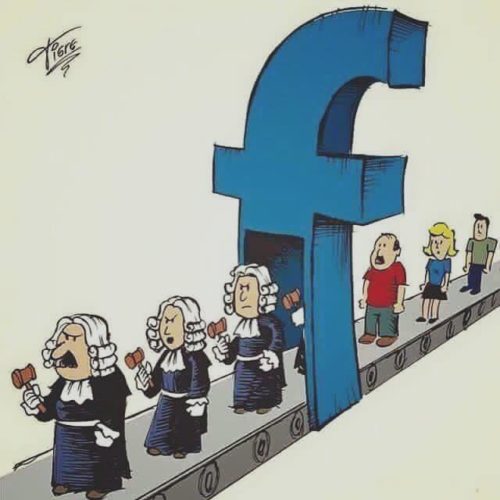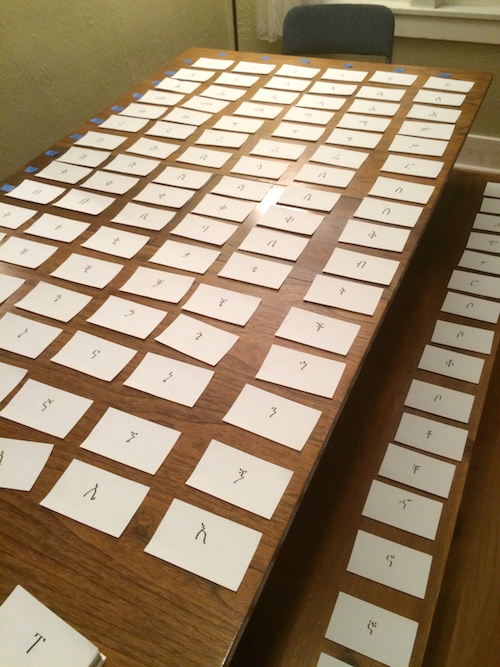Ever since the exile it had been possible to study and practice Torah even without the Temple and the Land. In the exile, of course, there was no Temple. This, naturally, constituted part of the problem of how to be a Jew in Babylon, how to sing YHWH’s song in a strange land. But in the [later] Diaspora [at the time of Christ], then and subsequently, the study and practice of Torah increasingly became the focal point of Jewishness. For millions of ordinary Jews, Torah became a portable Land, a movable Temple. The Pharisees in particular, in conjunction with the burgeoning synagogue movement, developed the theory that study and practice of Torah could take the place of Temple worship. Where two or three gather to study Torah, the Shekinah rests upon them. The presence of the covenant god was not, after all, confined to the Temple of Jerusalem, which was both a long way off and in the hands of corrupt aristocrats. It had been democratized, made available to all who would study and practice Torah.
-N.T. Wright, The New Testament and the People of God, p.228
Wright is imitating the phrase of Jesus in Matthew 18:20 (“where two or more are gathered together”) regarding the presence of God in his description of later Jewish thought about the Torah, but I think it’s accurate. The original reference is to ‘mAboth 3.2’, that is, Midrash Pirkei Avot (Ethics of the Fathers):
Rabbi Chanina son of Tradyon would say: Two who sit and no words of Torah pass between them, this is a session of scorners, as is stated, “And in a session of scorners he did not sit” (Psalms 1:1). But two who sit and exchange words of Torah, the Divine Presence rests amongst them, as is stated, “Then the G?d-fearing conversed with one another, and G?d listened and heard; and it was inscribed before Him in a book of remembrance for those who fear G?d and give thought to His name” (Malachi 3:16).
This entire shift is fascinating to me and the parallels in some sections of Christianity and Islam seem possibly related.
During the Babylonian exile, the focus of worship and devotion to Yahweh shifted from the temple (which was torn down) to the scrolls – the written word of the law, the Torah. Even after the temple was technically rebuilt, things were never the same. The cloud of glory was gone. The Ark was likely gone (this is never explained, leading to endless speculation). The Davidic kingdom was gone. The Romans ruled through a puppet king and the access to the rebuilt temple was controlled by elites. Devotion to the scripture had already begun to replace proper temple worship in Jesus’s day. The destruction of the temple in AD 70 was just the last nail in the coffin, not the beginning of a new era. From then on the holy words on the scrolls from God and the endless debate of their meaning (and the teaching of that meaning) would constitute the activity of the priestly class, now open to anyone willing to exercise their reading chops. Before, being a Levite was primarily to be a butcher. Now it was to be a scholar. The Word became a proxy for the (now inaccessible) Temple and Holy Land.
We see a similar shift with the more recent rise of Wahhabi Islam. This strict Sunni sect holds the holy words of the Koran to overshadow any later Muslim traditions or even borrowed traditions from the beginning. While the Shitte still have holy places and shrines, the Wahhabi (which currently includes many in power in Saudi Arabia) make a point of bulldozing them. ISIS destroys ancient sites of pilgrimage wherever they go. In this version, Islam is reimagined as something whose entirely lies completely in the text. The land (the currently non-existent caliphate) and the temple (Mecca) are downplayed in key ways.
Even the significance of the Kabba stone, the central cultic artifact of devotion from Islam’s conception is minimized under this scheme. It’s almost seems to me as if they are preparing for it’s possible destruction: accidental, or by enemies in war, or even by iconoclast clerics themselves. Under the Wahhabi scheme, the loss of the Kabba would not really be a mortal blow to Islam. It’s integrity would lie chiefly in the words that remain.
The parallel in Christianity is with those traditions that hold to fundamentalist Biblicism. In extreme expressions, the Bible is cherished as the thing that saves, not Jesus Christ. Evangelists urge listeners to come to the “saving knowledge” contained in it’s pages, rather than to enter into the work of Emmanuel, the outside savior come close.
Naturally, such an idea could only develop in a highly literate culture where all people could have unhindered access to their own copy of the scripture. A natural outworking of this theory is that the celebration of the Eucharist are extremely minimized and church polity is made a free-for-all. The formal Church, both the Pope with the keys in Rome, and the Reformed “Mother Kirk” variety, can be completely discarded. Sacraments? What are those? Church buildings are pointless. Let’s just repurpose a warehouse or arena. Worship modes conform to whatever conventions are familiar to the people. There is no ‘temple’ and no ‘land’, just the Word. Historical theology is completely disregarded. It’s just the Bible and God speaking to me via the Bible and my devotion to God via the Bible. My congregation is my local peeps who believe the same.
Adherents to this tradition (of which I count my own background as belonging to some lite flavor of this) describe it both as a “progress” away from medieval and even reformation-era baggage, and a “back to the roots” recovery movement of a more early “raw” and true form of Christianity. All Bible all the time. I’d love to believe the best and say that this tradition arose out of deep love of God’s word, but I suspect it’s more complex than that. I think it’s often rooted in anger at the institutional dysfunction of the church, or in feelings of disenfranchisement (loss of temple), or with increased cultural decadence and the rise of secularism in America (loss of land).
All three movements replace the importance of stuff “out there” with the stuff in the scrolls. It could be seen as just a cultural retreat (and it may be that), and yet, in a mystical sense, there IS some possible justification for this. Jesus Christ describes himself as the living Word. The meaning of John chapter 1 is still a mystery. Psalm 119 praises God’s delivered precepts in a way that is blurred with worship. Many of our philosophers have marveled at how the power of language seem to transcend communication mechanics and touch on something deep in the imago dei. When the Pharisees adapted their worship to center on the Torah rather than the temple, it made sense. The Holy Spirit has ensured that the Word is remarkably resilient.



